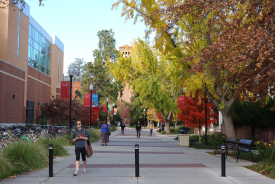Team sports help adolescents to feel less stressed and have better mental health as young adults, according to a University of Toronto study. Researchers said that nearly 23 to 40 percent of youth suffer from high levels of stress and feelings of depression.
Previous studies showed that physical activity helps build bones and muscles, maintain weight and perform well in studies.
Through the study, the researchers wanted to determine whether participation at school team sports can help avert depression and stress among youth.
For the study, researchers surveyed 850 Canadian students during the five years of their secondary school. The students were asked about their participation in school sports like basketball, soccer, track and field, wrestling and gymnastics. Three years after their graduation, the students were asked to rate their depression symptoms, stress levels and mental health on a scale of 1 to 5 with 1 being poor and 5 excellent.
The researchers found that students, who were part of school sports, scored well on three mental health tests when compared to those who did not participate at all. They also found a strong relationship between school sports during adolescent years and lower symptoms of depression, stress and mental health in young adulthood.
Researchers said that school administrators should be aware of the significance of sport participation and physical activity.
"The associations we have found show a long term impact. School sport from ages 12 to 17 protects those youth from poor mental health four years later," said lead author Catherine M. Sabiston, Ph.D., in a press release.
"There is surprisingly little known about school sport, so we can only speculate as to the unique effects, but we suspect it might be due to school sport providing adolescents with opportunities to bond with other students, feel connected to their school, interact with their peers and coaches, thus, really providing a social and active environment."
The study was published online in the Journal of Adolescent Health.
© 2025 University Herald, All rights reserved. Do not reproduce without permission.








